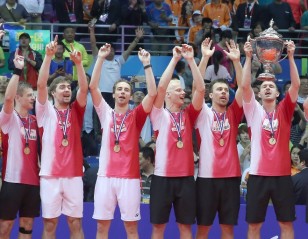
China’s Young Heroes – Thomas Cup Review
China’s young generation came good on the big stage to help their team recapture the Thomas Cup six years after China last lifted the trophy.
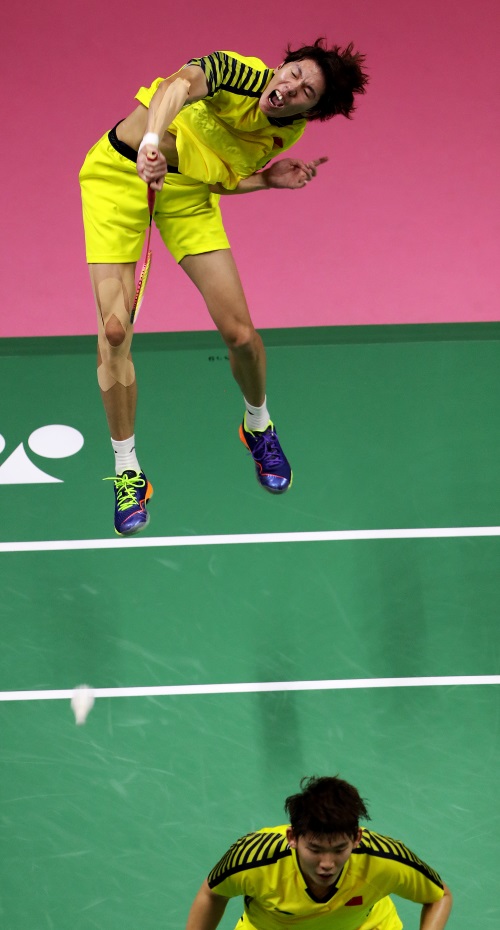 In Shi Yuqi and the Men’s Doubles pair of Li Junhui and Liu Yuchen, China found their heroes.
In Shi Yuqi and the Men’s Doubles pair of Li Junhui and Liu Yuchen, China found their heroes.
Nine-time winners China arrived in Bangkok for the TOTAL BWF Thomas & Uber Cup Finals 2018 secure in the knowledge that they had, on paper, the strongest team of the 16. With Olympic champion Chen Long as spearhead, and World champions Zhang Nan/Liu Cheng, All England winner Shi Yuqi, and Li Junhui/Liu Yuchen to follow; and five-time World champion Lin Dan as the most reliable fifth-match player a team could have, China looked solid in all departments.
On the other hand, this edition of the Thomas Cup had several teams with all-round depth. Defending champions and top seeds Denmark, for instance, arrived with a mostly unchanged squad from the one that won the tournament two years ago. Japan, Indonesia and Chinese Taipei too have enjoyed success in singles and doubles in recent years, while Hong Kong and Thailand looked capable of springing upsets against more fancied opponents.
Having qualified with ease to the quarter-finals, China’s first big test was expected to be Chinese Taipei. However, the Chinese powered past their rivals dropping just a game; after Chen Long provided the opening, Zhang/Liu held off Lee Jhe-Huei/Lee Yang in a close contest before Shi Yuqi edged past Wang Tzu Wei.
Shi again proved his mettle the following day, in the semi-finals against Indonesia. The All England champion was steadiness personified against Jonatan Christie, and his victory set up the tie for Li/Liu to storm past Mohammad Ahsan/Hendra Setiawan. The veteran Indonesians are renowned for their  mastery of the serve-return and net situations, but Li and Liu did not allow them any breathing space up front, and despite losing the first game, stepped on the gas in the second and third, with the Indonesians unable to repel their fierce attack. The manner of their victory was a signal that China were going into the final with all engines running smoothly.
mastery of the serve-return and net situations, but Li and Liu did not allow them any breathing space up front, and despite losing the first game, stepped on the gas in the second and third, with the Indonesians unable to repel their fierce attack. The manner of their victory was a signal that China were going into the final with all engines running smoothly.
Japan got the start they wanted in the final with Kento Momota’s masterly display against Chen Long. World champions Zhang/Liu outclassed Takuto Inoue/Yuki Kaneko to get China back into the contest.
Shi Yuqi once again stepped up to the plate and with commendable assurance, stopped Kenta Nishimoto in his tracks.
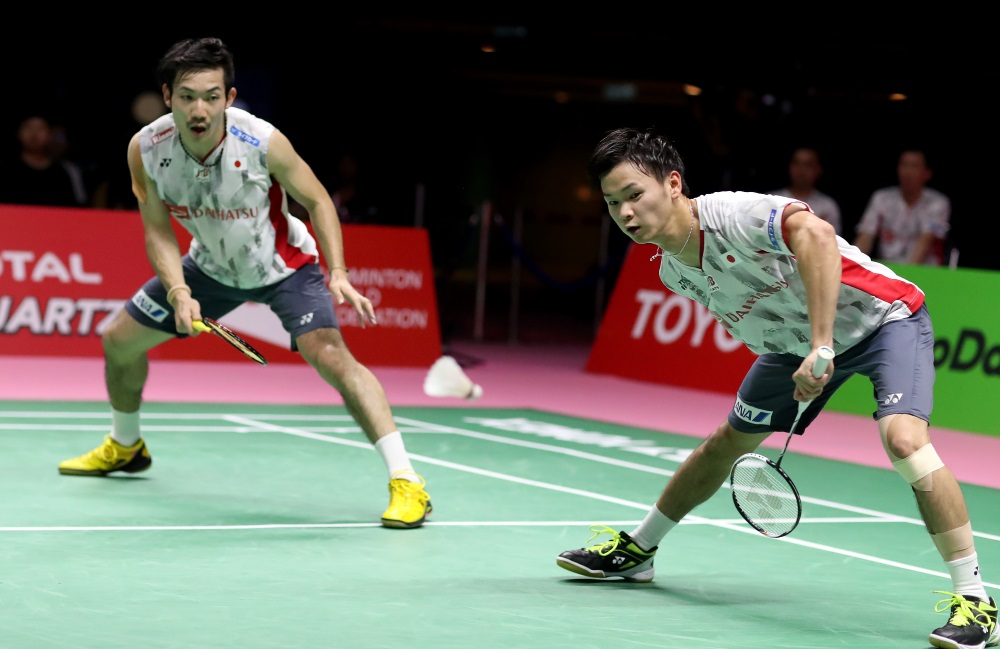
Japan fielded the scratch combination of Keigo Sonoda and Yuta Watanabe against Li and Liu – and it worked brilliantly for them. The Japanese were electric in the opening game, and it took all of Li and Liu’s skills to rein them in. With two match points, Watanabe and Sonoda nearly took Japan to a fifth match, but Li and Liu showed they had finally matured into world-beaters, staying calm during the storm to steer China through. China’s young guns had steered the ship to safely.
And while Japan went down, in their spirited display they made a grand impression. They had come through the toughest group of the four – Group C – against Chinese Taipei, Hong Kong and Germany – dropping just two matches on the way.
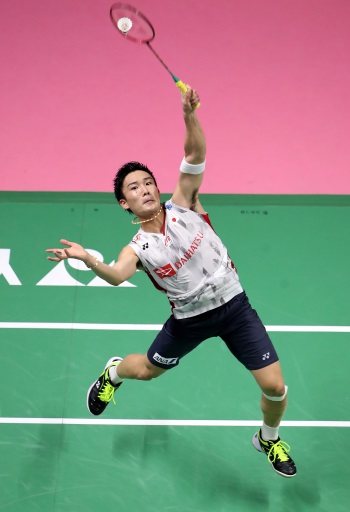
The semi-final against Denmark was an engrossing tie. Momota can well claim to be the best player in the world at the moment as he dispatched World champion Viktor Axelsen 21-17 21-9. Denmark, missing Carsten Mogensen, fielded Mathias Boe and Mads Conrad-Petersen against Takeshi Kamura/Keigo Sonoda and the new combination clicked.
Hans-Kristian Vittinghus was Denmark’s hero during their title victory in 2016, but Kenta Nishimoto was the better player on the day as he closed out the contest 21-19 21-12.
Kim Astrup and Anders Skaarup Rasmussen took the tie to the fifth match. Jan O Jorgensen’s experience was expected to favour him against Kanta Tsuneyama, but the match turned out differently, with Jorgensen unable to contain the attacking Tsuneyama. The defending champions were out of the tournament.
A lot of the credit for Japan’s performance went, deservingly, to Momota, who capped a sensational comeback from suspension. Momota continued from where he left in Wuhan – he won the Asian title in April – winning all his six matches in Bangkok.
Another player who led his team admirably was Lee Chong Wei. The veteran was once again the rock for his team, winning all three of his matches, including the group match against Viktor Axelsen, in which he started out with spellbinding speed before relying on his craft to fashion a 21-9 21-19 victory. He followed that up by beating Anthony Ginting in the quarter-finals to put Malaysia ahead, but the rest of his team couldn’t quite keep up.
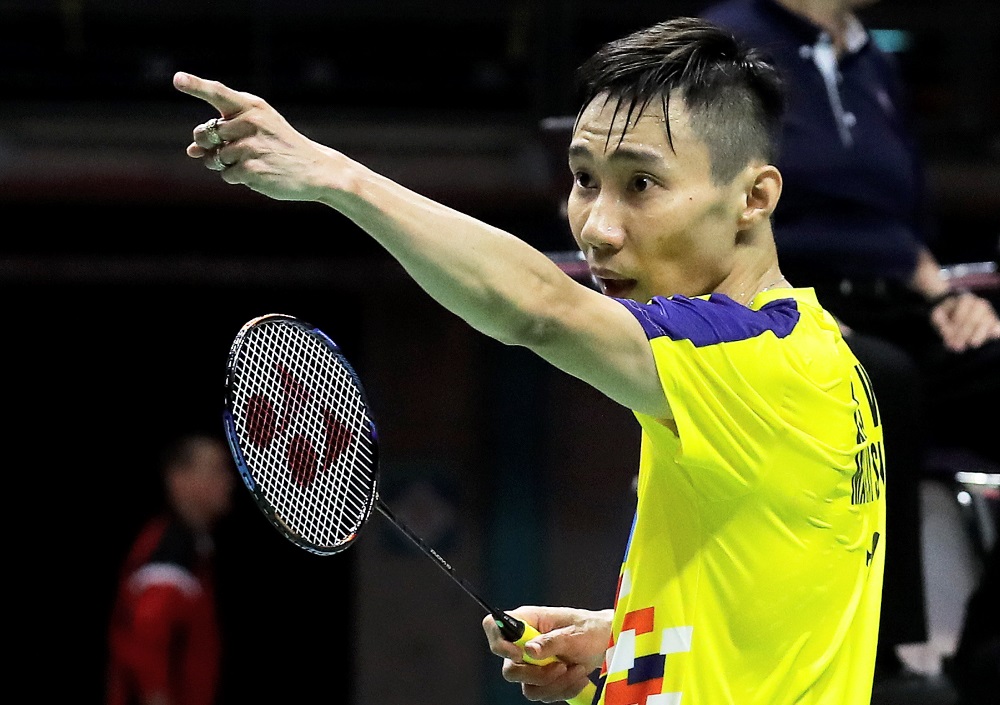
Hosts Thailand, in Group B with Indonesia, Korea and Canada, couldn’t match the sensational display of their Uber Cup team, failing to progress past the group stage. The tie that cost the Thais dearly was against Korea, as they went down 3-2.
Of the other teams, France did well to qualify for the quarter-finals, finishing second in Group A, ahead of India and Australia.
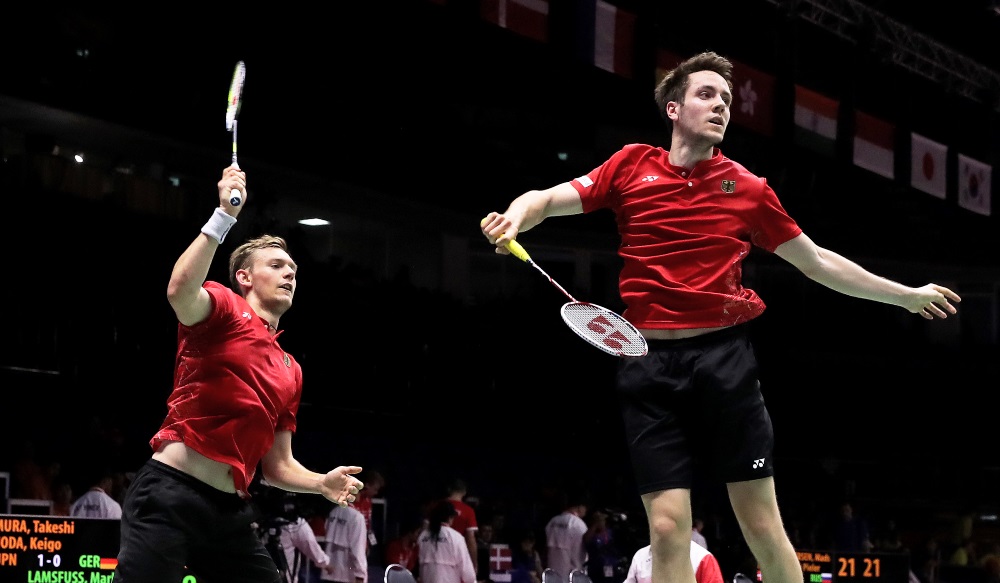
Group C was reckoned to be the ‘group of death’, with Japan, Chinese Taipei, Hong Kong and Germany. While Germany did finish last in the group, they gave a good account of themselves, losing narrowly to Hong Kong 3-2, and taking a point off Japan (4-1). Mark Lamsfuss/Marvin Emil Seidel will look back with some happy memories, as they beat Japan’s Takeshi Kamura/Keigo Sonoda and Hong Kong’s Lee Chun Hei/Or Chin Chung, both in close finishes.
Thomas & Uber Cup News
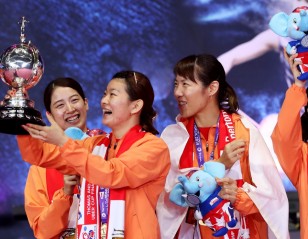
Japan Stamp Supremacy – Uber Cup Review 8 June 2018
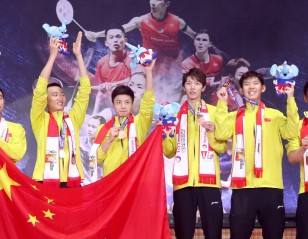
Title No.10 for China – Thomas Cup Final: TOTAL BWF Thomas &... 27 May 2018
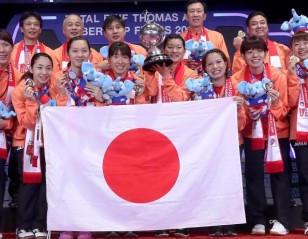
Women of the Rising ‘Stun’! – Uber Cup Final: TOTAL BWF TUC... 26 May 2018
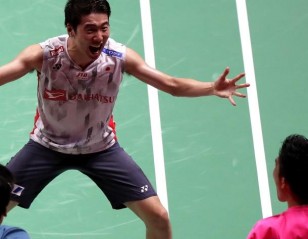
‘Tongue-Twisters’ Torment Titlists – Thomas Cup Semi-Finals: TOTAL BWF TUC Finals 2018 25 May 2018
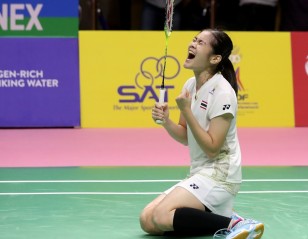
‘Uber’ Achievers! – Uber Cup Semi-finals: TOTAL BWF TUC Finals 2018 25 May 2018
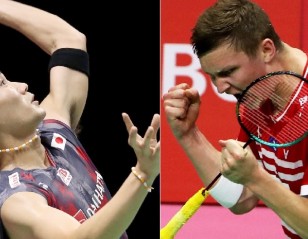
Denmark, Japan into Semis – Day 5 – Session 3: TOTAL BWF... 24 May 2018
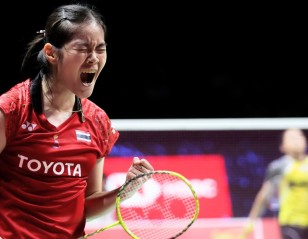
Emotional Win for Thailand – Day 5 – Session 2: TOTAL BWF... 24 May 2018
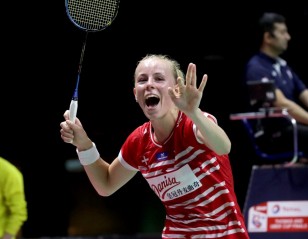
China, Korea Overcome Jitters – Day 5 – Session 1: TOTAL BWF... 24 May 2018
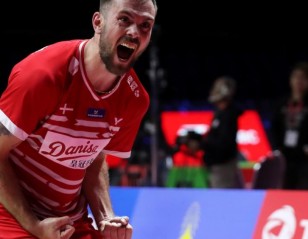
Jorgensen Delivers – Day 4 – Session 3: TOTAL BWF TUC Finals... 23 May 2018
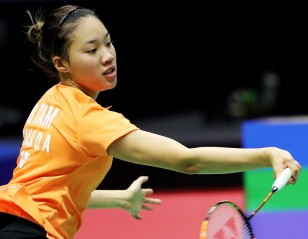
Canada Through to Quarters – Day 4 – Session 2: TOTAL BWF... 23 May 2018
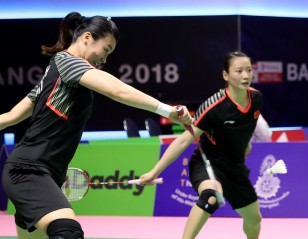
China Hold Firm – Day 4 – Session 1: TOTAL BWF Thomas... 23 May 2018
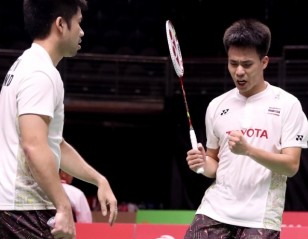
Resilient Indonesia – Day 3 – Session 3: TOTAL BWF TUC Finals... 22 May 2018
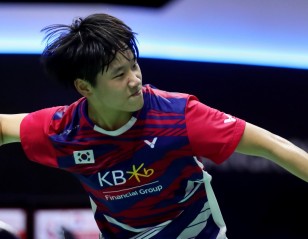
Schoolgirl to the Rescue – Day 3 – Session 2: TOTAL BWF... 22 May 2018
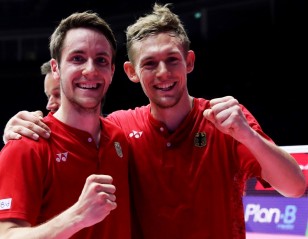
German Scare for Japan – Day 3 – Session 1: TOTAL BWF... 22 May 2018
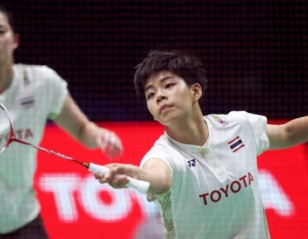
China, Thailand Look Ahead – Day 2 – Session 3: TOTAL BWF... 21 May 2018
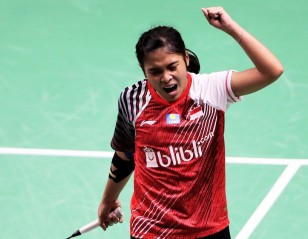
Indonesia Pass Malaysian Test – Day 2 – Session 2: TOTAL BWF... 21 May 2018
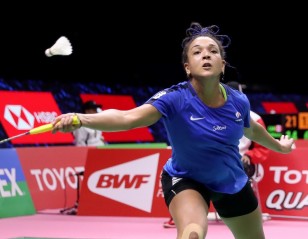
Debutants Relishing Experience – Day 2 – Session 1: TOTAL BWF TUC... 21 May 2018
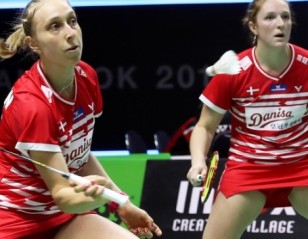
Korea Prevails – Day 1 – Session 3: TOTAL BWF TUC Finals... 20 May 2018
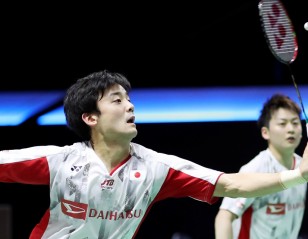
Japan Start Strong – Day 1 – Session 2: TOTAL BWF TUC... 20 May 2018
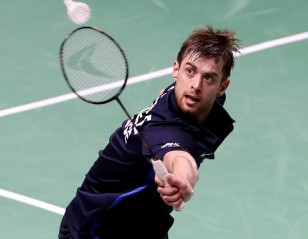
Corvee Stars in French Victory – Day 1 – Session 1: TOTAL... 20 May 2018
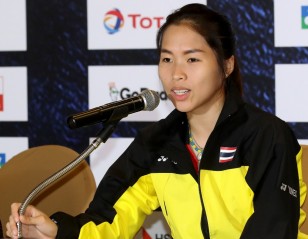
Banking on Home Support – TUC Finals 2018 19 May 2018
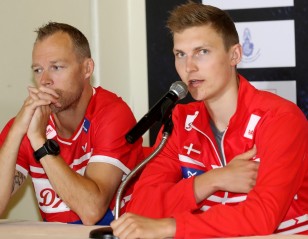
Defending Champions Confident Despite Setbacks – TUC Finals 2018 19 May 2018
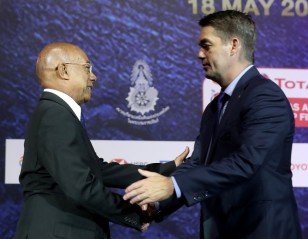
Honour for Fernandez, Sornprachum and Klutzke 19 May 2018
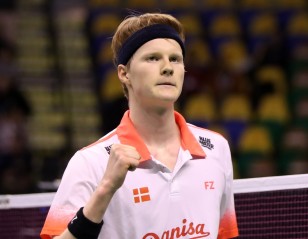
Strong Danish Line-up – Preview: Thomas Cup Squads 11 May 2018
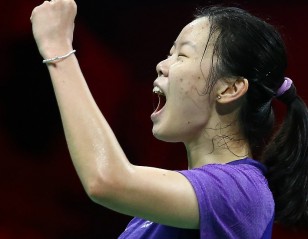
Li Xuerui Returns – Preview: Uber Cup Squads 9 May 2018
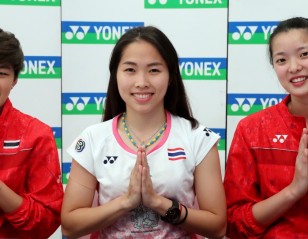
Bangkok Beckons! 2 May 2018
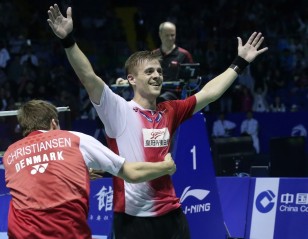
Indonesia, Japan Start ‘Thomas-Uber’ Action 12 April 2018
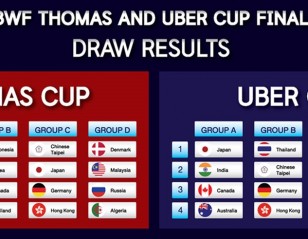
Japan in ‘Group of Death’ 22 March 2018

Hong Kong, France Qualify for TUC 2018 20 March 2018
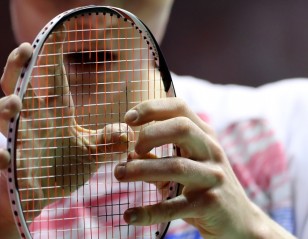
Fitness, Equipment in Focus at World Congress 4 March 2018
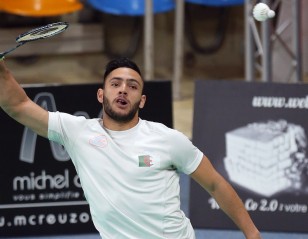
Algeria to Debut in Thomas Cup 26 February 2018
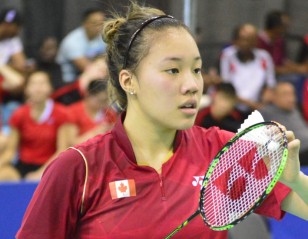
Canadian Supremacy – Finals: M&F Pan Am Team Championships 2018 19 February 2018
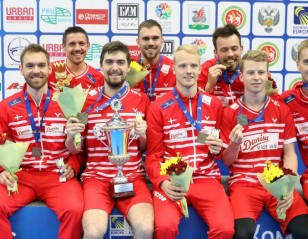
Denmark’s Reign Continues – Finals: 2018 European Men’s & Women’s Team Championships 19 February 2018
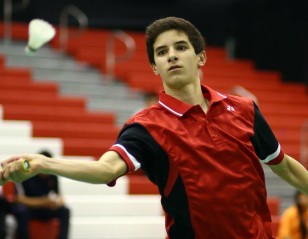
Peru Go Down Fighting – Day 3: M&F Pan Am Team Continental... 18 February 2018
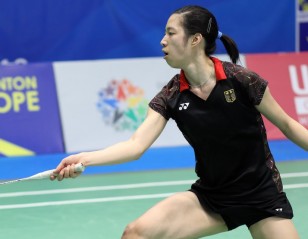
Germany in Title Bout – Day 5: 2018 European Men’s & Women’s... 18 February 2018
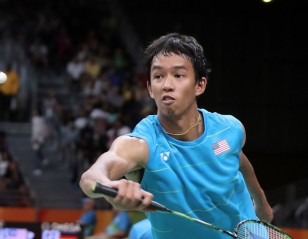
Jamaica, Peru in Semis – Day 2: M&F Pan Am Continental Team... 17 February 2018
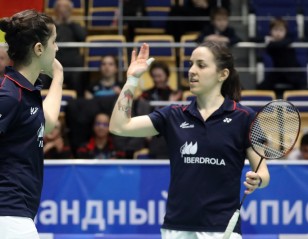
Spain Survive Turkish Challenge – Day 4: 2018 European Men’s & Women’s... 16 February 2018
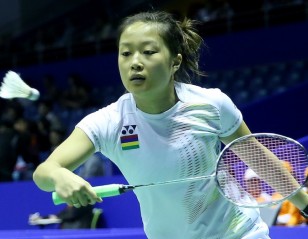
Algeria Make History – Finals: All Africa Men’s & Women’s Team Championships... 16 February 2018
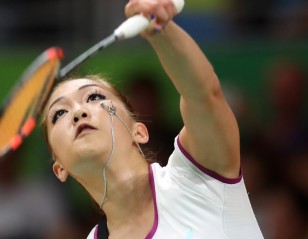
Tight Wins for Nigeria, Mauritius – Semi-finals: All Africa Men’s & Women’s... 15 February 2018
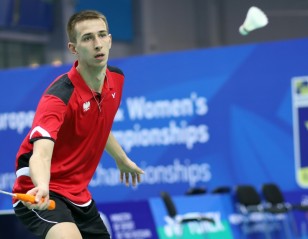
Poland Ease Past Portugal – Day 2: 2018 European Men’s & Women’s... 15 February 2018
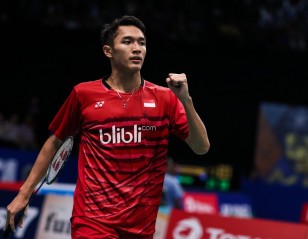
Indonesia, Japan Triumph – Finals: E-Plus Badminton Asia Team Championships 2018 12 February 2018
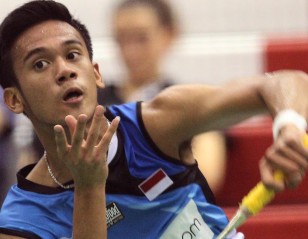
Kholik Stars in Indonesia’s Win – Semi-finals: E-Plus Badminton Asia Team Championships... 10 February 2018
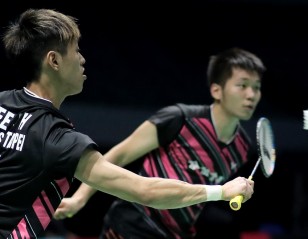
Chinese Taipei Outplay Thailand – Day 2: E-Plus Badminton Asia Team Championships... 8 February 2018
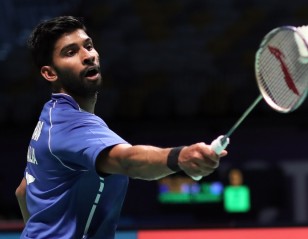
Australia Prevail in Thriller – Victor Oceania Team Championships 2018 7 February 2018
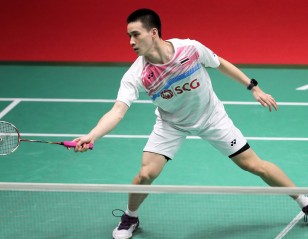
Close Win For Thailand – Day 1: E-Plus Badminton Asia Championships 2018 7 February 2018
